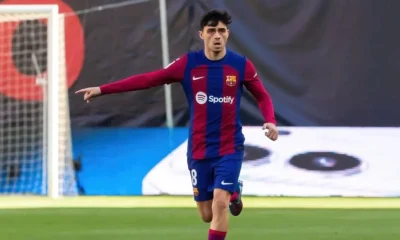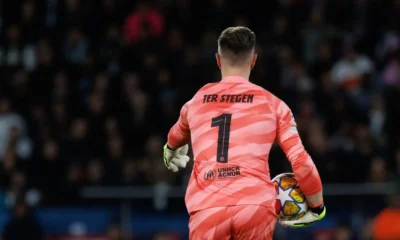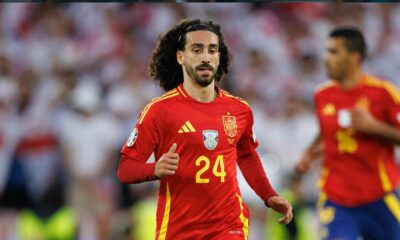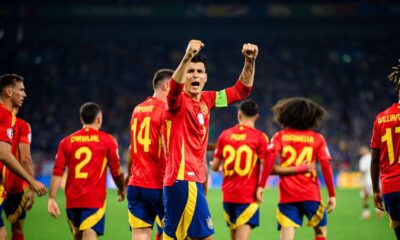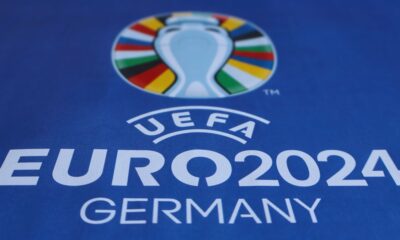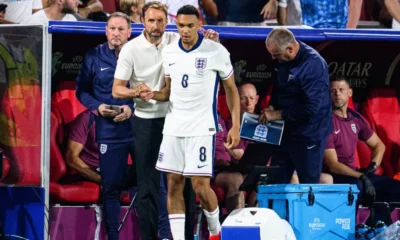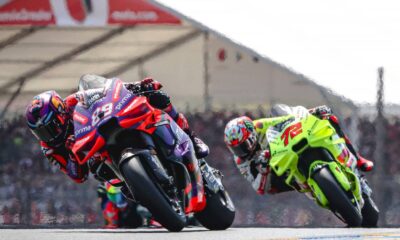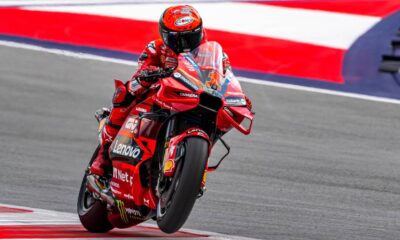Football
Germany will be without a competitive match until EURO 2024. Could this hurt the team?
Germany failed to win its third major tournament in a row. After winning the 2014 World Cup, the semi-finals of EURO 2012 and 2016 or even winning the 2017 Confederations Cup, they crashed out of the 2018 World Cup in the group stage, they went home after the eighth round at the following EURO in Britain and we all have vivid memories of their elimination in the group stage of last year’s World Cup. Next up is their home EURO, where they will have extra motivation to put the failures of previous years behind them. But automatic qualification for the home tournament could prove to be a big handicap.

Germany failed to win its third major tournament in a row. After winning the 2014 World Cup, the semi-finals of both EURO 2012 and 2016, or even winning the 2017 Confederations Cup, they crashed out of the 2018 World Cup in the group stage, went home after the eighth round at the following EURO, and we all have vivid memories of their elimination in the group stage of last year’s World Cup.
Next up is their home EURO, where they will have extra motivation to put the failures of previous years behind them. But automatic qualification for the home tournament could prove to be a big handicap.
The German national team is in a difficult period. Not only have they had a series of failures at the highest level, the national team of our western neighbour is going through what could be described as an identity crisis.
Following the failure at two consecutive championships and the general aridity that the selection showed, coach Loachim Löw has left his place on the bench. This should have brought some relief after his fifteen years as head coach.
His successor, Hans Flick, was expected to, like he did with Bayern Munich, take the imaginary ball off the players’ feet and start tapping into the team’s true potential.
It was also expected that the new coach would be able to revive the team and steer it towards a better tomorrow. However, after a promising start, it became apparent that Hans Flick was still searching for his top pick, unsure of which players to lean on, and most importantly, unable to find answers to a few specific and very obvious problems. All of this resulted in a failed 2022 World Cup under his watch (I covered the reasons for Germany’s early exit in more detail HERE).
So the German national team is going through a sort of transition period. Still without a profiled spearhead striker or a fixed stopper pairing since the end of Boateng and Hummels, long-time mainstays Thomas Müller and Manuel Neuer are nearing the end of their careers in attack and defence through national football. The ageing Ilkay Gündogan comes into the midfield and Marco Reus is also always on the fringes of the nomination.
And while this aforementioned foursome, supplemented by the likes of Toni Kroos, who has already ended his national team career, have their best years behind them, the new, upcoming generation, around Jamal Musiala, Florian Wirtz or Youssouf Moukoko, have not yet grown into their roles. Caught in the midst of this changing of the guard is a vintage crop of ‘ninety-five-year-olds’, around Joshua Kimmich and Leroy Sané, who are paying the price for this all-too-long and painful process.
German football spent the autumn in an atmosphere of anticipation and hope that the World Cup would be a sort of dress rehearsal before the domestic EURO. That it would offer young talents unquestionable experience, which they would then evaluate in front of their own spectators. That it will unite the whole team and show a clear direction. That it will be a kind of dress rehearsal.
However, none of this has happened, and today we still do not know whether Thomas Müller will appear at EURO 2024 and in what role. We have no idea who will lead the manifesto attack. We have no idea how the defence will be composed with such a painful right-back position. We don’t know who will complement Kimmich with Goretzka in midfield. And we don’t know much more. Above all, whether Manuel Neuer will return to the national team’s goal or finally pass the gloves on.
And in this atmosphere of uncertainty, Germany is facing one of the biggest events on the national stage, the EURO, which it hosts at home in a year and a half. And to make the whole situation even worse, the next competitive match that Hans Flick’s selection will play will be the ‘opener’ of the aforementioned European Championship.
Germany, as the host country, is assured of its participation. Thus, it will not have to go through the qualification process where it could have competed in a competitive environment and will thus lose both the opportunity and the experience.
They will also have no more matches in the Nations League. After finishing third in the group behind Italy and Hungary, this tournament is over for them for the current edition and the next one will kick off after the final stage between the aforementioned Italy, Croatia, Netherlands and Spain is played.
Also the new Nations League will therefore not start until after EURO 2024 and even here the Germans cannot count on a full match schedule.
Preparation for the tournament will therefore be in the form of friendlies. On the one hand, these allow to try different alternatives, because if they do not work, they will have absolutely no impact.
However, it is precisely this lack of consequences that leads to a relaxed pace in friendlies, less commitment and, as a result, does not prepare the selection for the real game that awaits them in the summer of 2024, in front of stands full of home fans who, after years of disappointment, are full of expectations that success will finally come in their home environment.
Source: German national football team, FIFA

-
Motorsport5 days ago
Jorge Martín is rewriting history! the 26-year-old Spaniard became the new MotoGP World Champion, Bagnaia succumbed despite his best efforts
-
Motorsport6 days ago
Bagnaia keeps hopes of a miracle alive with MotoGP sprint win in Barcelona, third-placed Martín one step away from title
